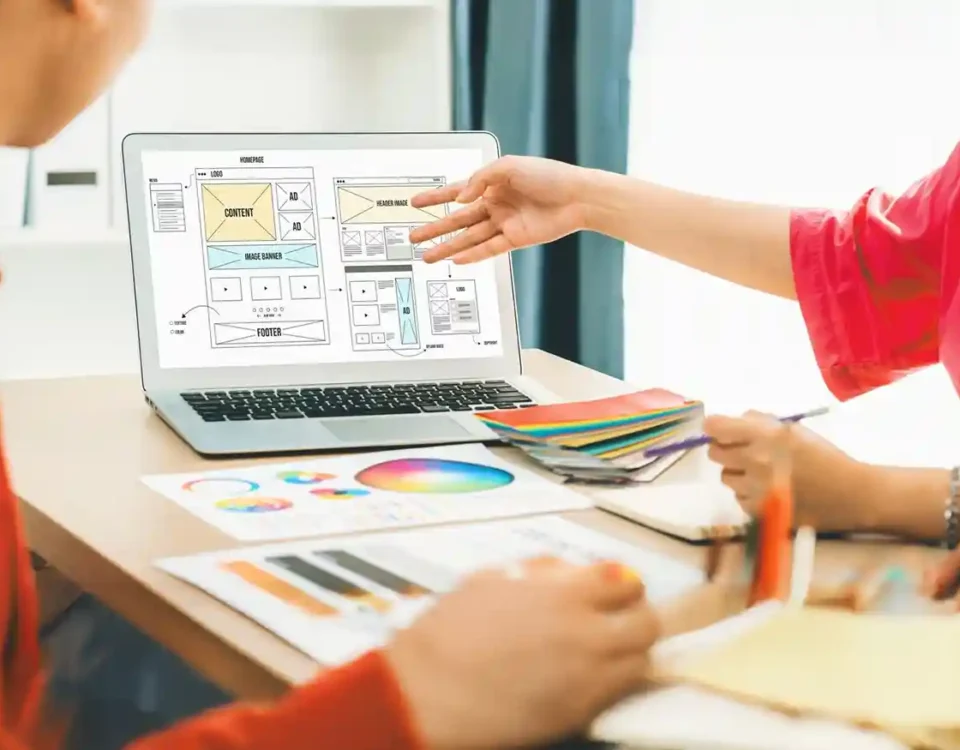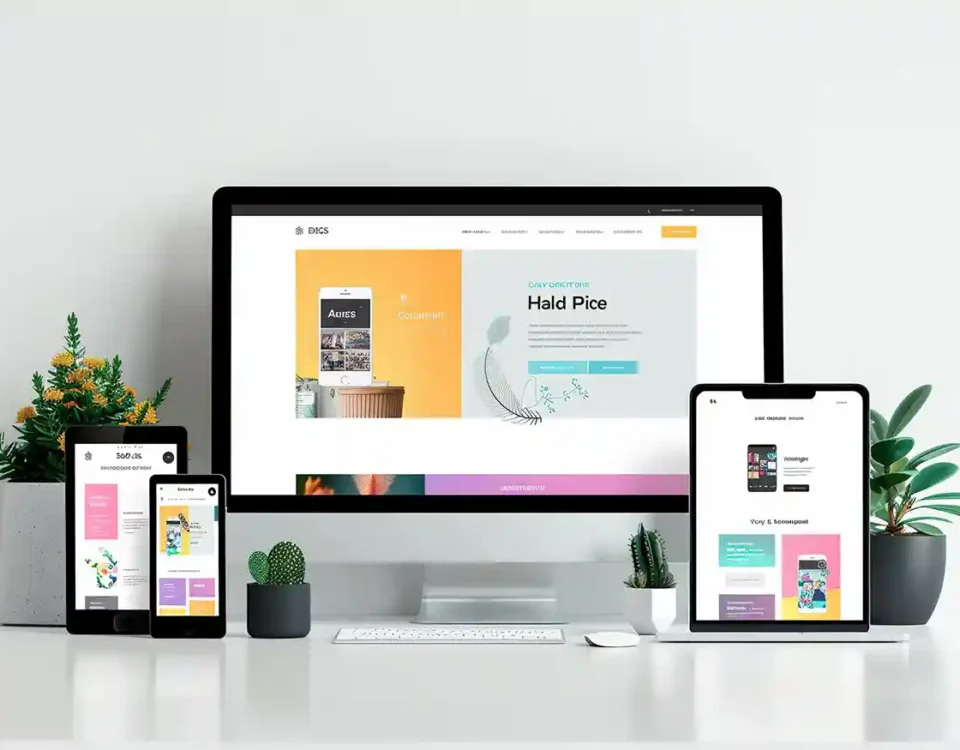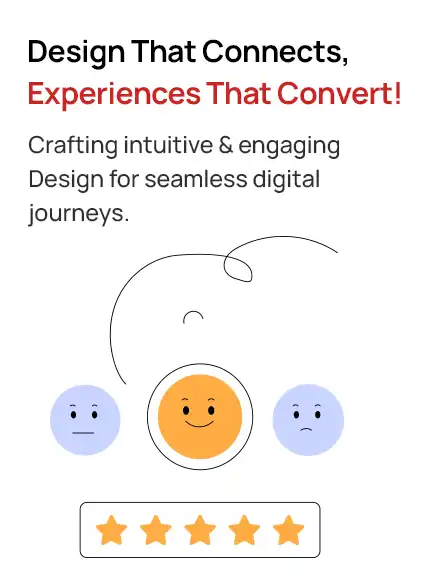
The Ultimate Guide to Website Design for Manufacturing Companies
July 9, 2025
The Rise of User Interface Design in Chicago: A Local Perspective
July 14, 2025
The Ultimate Guide to Website Design for Manufacturing Companies
July 9, 2025
The Rise of User Interface Design in Chicago: A Local Perspective
July 14, 2025Branding for Therapists: A Guide to Client Connection
July 11, 2025
- 17 min to Read
Introduction
In a field where empathy and trust matter more than anything, branding may seem like a distant, corporate concept. But in today’s digital-first world, how you present your therapy practice online matters just as much as the work you do inside your session room.
Whether you’re just starting out or running a growing practice, branding for therapists is no longer optional — it’s essential. It defines how potential clients perceive you, helps you stand out in a saturated market, and builds connection long before a single conversation takes place.
This in-depth guide will walk you through everything you need to know about therapist branding: what it is, why it matters, how to build it, what it costs, and how to make it truly yours.
What Is Branding for Therapists?
Let’s clear up a common myth: branding is not just a logo or color palette. Especially for therapists, branding is about emotional resonance. It’s the feeling someone gets when they see your website, read your content, or hear about you from a friend.
Branding for therapists is the consistent message and image you present to the world. It includes:
- Your practice name and tagline
- Your tone of voice and communication style
- The look and feel of your website and social channels
- The emotional promise you make to clients
Branding is how you tell the story of who you are, who you help, and how you help them — without being in the room.
Why Branding Matters in Therapy
You might think, “If I’m good at what I do, clients will find me.” Unfortunately, that’s not how most people look for therapists anymore. Today’s clients are often overwhelmed with options and turn to websites, directories, and social media to make a choice.
Here’s how intentional branding can help:
1. It Builds Trust Before You Speak
Your brand is your first impression. A clean, warm, and professional website with cohesive branding instantly makes people feel more at ease. It tells them: “This therapist is organized, present, and invested in their work.”
2. It Attracts the Right Clients
Every therapist has a different approach — clinical, spiritual, holistic, trauma-informed, goal-oriented, etc. Your branding should reflect your unique style so that clients who need your exact energy and expertise can recognize it right away.
3. It Differentiates You in a Crowded Market
Especially in urban or competitive areas, potential clients may scroll through dozens of therapist profiles. Clear, cohesive branding helps you stand out and become memorable — not just another name on a list.
4. It Creates Consistency Across Touchpoints
From your Psychology Today profile to your Instagram page, your brand should feel like “you” everywhere. That consistency reinforces your reliability and makes clients feel more confident in reaching out.
Elements of a Strong Therapist Brand
A strong brand doesn’t need to be flashy or complicated. It just needs to be you — clearly and consistently. Here’s what to focus on:
1. Visual Identity
Your color palette, fonts, and logo should feel aligned with the emotional space you want to create. For example, soft neutrals often feel calming, while bold colors may feel more energetic and expressive.
2. Website Design
Your website is often your most powerful branding tool. It should be:
- Simple and easy to navigate
- Clear about who you help and how
- Aligned with your tone and values
- Optimized for mobile
3. Messaging
What do you say — and how do you say it? Your brand’s tone should feel natural, whether that’s warm and nurturing, direct and solution-focused, or something else. This applies to your blog, emails, website copy, and social posts.
4. Your “Why”
Many therapists skip this — but sharing your “why” (why you became a therapist, what drives your work) helps potential clients connect on a human level. That’s branding at its best: real, personal, and honest.
The Role of Niche in Therapist Branding
One of the most powerful things you can do for your brand is define your niche. When you try to help everyone, it’s hard to connect with anyone. A clear focus makes your message easier to understand.
Ask yourself:
- Who do I feel most energized working with?
- What mental health issues or life stages do I specialize in?
- What is my unique approach or perspective?
Examples of niche branding:
- “I help new moms rediscover themselves after childbirth.”
- “I work with high-achieving professionals dealing with burnout.”
- “I guide LGBTQ+ teens through identity and anxiety challenges.”
Brand Development Cost for Therapists
Now that you understand the value of branding, let’s talk about the brand development cost. What does it take — financially — to build a brand that feels aligned and professional?
Here’s a general breakdown:
| Type | What’s Included | Estimated Cost |
|---|---|---|
| DIY Branding | Canva logo, template website, self-written copy | $0 – $300 |
| Freelancer Support | Logo + brand kit + Squarespace/Wix website | $500 – $2,000 |
| Professional Branding Agency | Strategy, custom visual identity, website, copywriting | $2,500 – $10,000+ |
If you’re in the early stages, starting small is fine. But as your practice grows, investing in professional branding can elevate your image and increase both trust and conversion. Done right, it pays for itself over time.
Choosing the Right Brand Development Service
If you don’t have the time or design skills to handle everything yourself, working with a brand development service can be a game-changer.
Here’s what to look for:
- Do they understand the therapy field?
- Do they prioritize emotional clarity over flashy visuals?
- Will they guide you through both design and messaging?
- Can they support your brand across web, social, and offline channels?
A good partner will ask deep questions about your values, tone, and vision — and build a brand that reflects you, not just generic templates.
Mistakes to Avoid When Branding Your Therapy Practice
Branding can be powerful, but only if it’s done with intention. Here are some common missteps to avoid:
- Inconsistency Using different tones or styles across your platforms can confuse potential clients.
- Overly Clinical Language You’re not writing for peers — you’re writing for clients who may be scared, anxious, or unsure. Keep your tone accessible and human.
- Avoiding Personality Trying to “look professional” shouldn’t erase your personality. Clients want to see you, not a version of you filtered through corporate jargon.
- Copying Others Your brand should be a reflection of your voice, not someone else’s. Take inspiration, but don’t imitate. Authenticity is more powerful than perfection.
Final Thoughts: Human-First Branding That Builds Connection
Branding for therapists means creating something clear and caring, not just something that looks good. A thoughtful, authentic brand helps clients feel safe with you before they’ve even walked in the door.
And when your branding truly reflects your values and approach, it stops being “marketing” — and starts becoming part of your impact.
At Upclues, we specialize in helping mental health professionals build brands that connect. Our full service brand development approach includes everything from brand strategy and messaging to visual identity, website design, and positioning.
When you're ready to shape a brand that feels natural and connects with the right clients, we’re here to support you.
Want support with branding your therapy practice?
Explore our full-service packages at Upclues and let's build something meaningful together.





